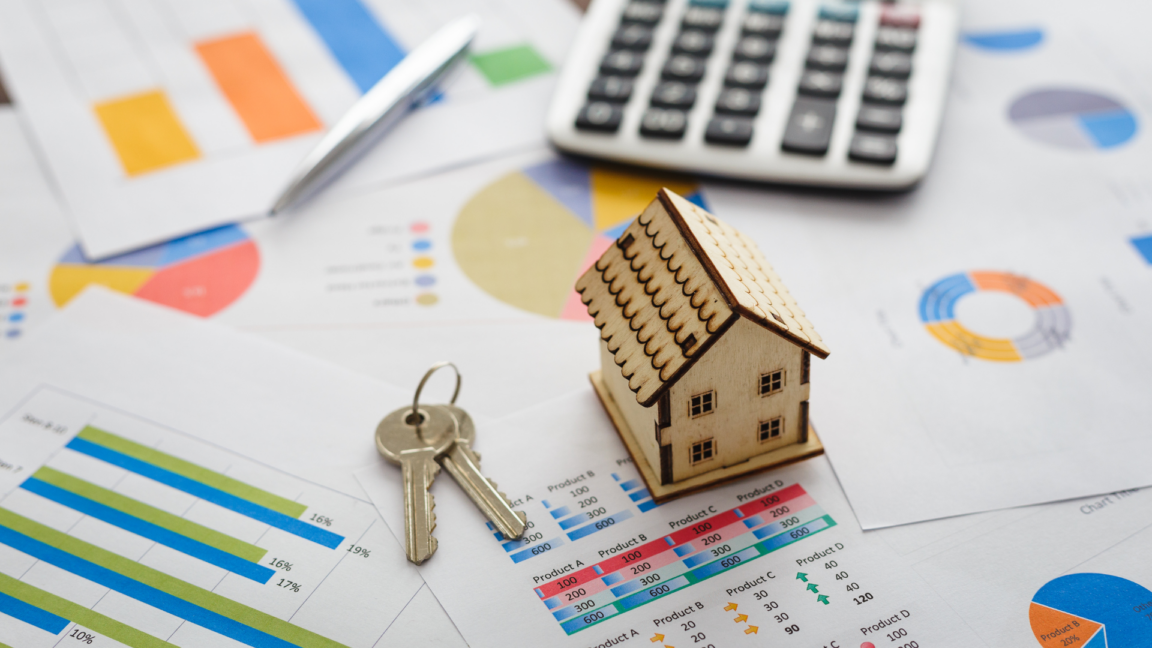Decoding Inflation: Unraveling its Causes, Impact on Us, and the Real Estate Market


Keeping a close eye on financial matters is crucial, especially for investors. One term that frequently arises is "inflation," a significant concern with direct implications for our financial well-being. However, the true meaning of inflation remains elusive for many. Today, PropertyScout aims to shed light on this concept, offering valuable insights into its impact on our finances and, more specifically, the real estate market.
What is Inflation?

Inflation refers to a situation where the prices of goods and services, in general, continuously rise. If inflation increases significantly, it can have an impact on the living standards and well-being of the population. To put it simply, it means that the cost of basic necessities, such as rice, becomes more expensive. When inflation rises, it affects our livelihoods by increasing the burden of expenses while income remains the same. To illustrate, let's consider a scenario from over 20 years ago when a bowl of noodles cost 20 Baht, but now it has increased several times over.
The responsible entities for controlling and overseeing inflation are the Ministry of Commerce and the Bank of Thailand. The main causes of inflation can be divided into two categories: demand-pull inflation, which occurs when there is an increase in the demand for goods and services, and cost-push inflation, which arises from an increase in production costs.
Causes of Inflation

Demand-Pull Inflation
- Demand-Pull Inflation occurs when consumers have an increased desire to purchase goods and services, but the availability of those goods and services in the market is insufficient. This leads to sellers adjusting their prices upward. The increase in demand for goods and services can stem from various factors, such as changes in the money supply or explicit government policies that directly allocate funds to the public, like the Village and Community Fund (SML) or community funds, which inject money into the economy. This influx of funds gives people more disposable income, resulting in increased consumption and higher demand for goods.
Cost-Push Inflation
- Increased production costs: If producers are unable to bear the burden of rising costs, they will have to adjust prices of goods and services upward.
- Causes of rising production costs include an increase in labor wages (as higher demand for goods requires increased production capacity or hiring more workers, leading to higher labor costs), natural disasters, or the current increase in oil prices.
- Production costs are a determining factor in price policies for goods and services. If production costs increase, whether due to higher labor costs or rising raw material prices, it leads to an increase in product prices. As prices rise, consumers need to spend more than before, resulting in increased money flow into the market.
Inflation vs Deflation
Deflation differs from inflation as it occurs when the overall price level of goods and services continuously decreases, with various causes. It can result from a decrease in consumer demand for goods and services or when the circulating money supply in the economy is insufficient to meet demand.
Deflation can lead to price reductions, causing producers to reduce their production levels. This, in turn, affects the economy negatively, creating a sluggish economic environment in the long run.
Impacts of Inflation
The inflationary condition has impacts on all of us, whether directly or indirectly. For instance, it affects the purchasing power of individuals. Inflation causes the value of money to decrease, as prices of goods and services become more expensive. With the same amount of money, people can buy less. When the value of money is low, it requires a larger amount of money to make purchases, thereby reducing the purchasing power of individuals.
Impacts on Citizens

Increasing expenses or the burden of living costs can lead to a decrease in people's purchasing power and their ability to afford goods and services. It may also result in insufficient income or inadequate funds to sustain their livelihoods.
Furthermore, as the inflation rate rises, it directly impacts the real interest rate, also known as the "nominal interest rate adjusted for inflation." The real interest rate decreases because the interest rate earned on savings or investments may not keep pace with inflation. This means that the purchasing power of interest income declines over time.
Example
In the case where the interest rate on deposits is 1.5% per year, but if the inflation rate or price increase reaches 1%, it can be said that the real interest rate or net return actually received is only 0.5% per year. However, if in the following year the deposit interest rate remains the same, but the inflation rate rises to 2%, the real interest rate would become -0.5% per year. This means that the purchasing power of depositors would decrease.
Negative real returns from deposit accounts discourage individuals from saving money and may lead them to invest in other asset classes that offer higher returns, such as gold, real estate, and stocks. However, this exposes them to higher levels of risk. Without sufficient knowledge and proper management, individuals may find themselves burdened with debt.
Impact on Entrepreneurs

When prices of goods increase, sales tend to decrease. Simultaneously, production costs also rise. This may lead some business owners to delay production, reduce investments, and cut back on hiring, resulting in increased unemployment.
The competitiveness of domestic businesses declines as the prices of our exported goods become higher compared to those of other countries.
Impact on the Real Estate Market

Due to the rising construction costs of real estate, including labor and building materials such as stone, soil, and sand, inflation leads to increased wages and higher construction material expenses. Consequently, property prices also rise in response. However, existing property owners benefit from the increased value of their homes.
Nevertheless, a high inflation rate presents the best opportunity for homebuyers as there is a higher chance of future value appreciation. However, during inflationary periods, homebuyers need to carefully select a suitable location and price to ensure that the property's value increases in line with or surpasses the inflation rate. It is advisable to consider long-term fixed-rate mortgages rather than using cash, as the value of money in the present is higher than in the future. Utilizing a fixed interest rate long-term loan is recommended, as during periods of inflation, interest rates tend to rise as well.
When looking for a residential location with the potential for increased value due to inflation, it is preferable to choose an area with convenient amenities and access to public transportation, such as a BTS skytrain zone. Such locations are less likely to experience significant price decreases during economic slowdowns or excessive price increases. However, opportunities for short-term returns may be more challenging to attain.
Impact on the Country

In a situation where people are purchasing fewer goods, businesses struggle to sell their products, leading to a slowdown in investment for production. Consequently, the long-term development of the country's production capacity may also be hindered.
If the inflation rate remains high, resulting in persistently negative real interest rates, the public may turn to speculative investments in high-risk assets, contributing to various asset price bubbles and financial imbalances within the country, such as household debt.
Closing Comments
The phenomenon of inflation serves as a market mechanism and an economic indicator, necessitating price adjustments throughout the economy. However, if price increases are limited to specific sectors or remain modest, they may not constitute significant inflation. Nevertheless, when inflation reaches excessive levels, it triggers volatility and presents challenges within the economic system, especially affecting people's livelihoods due to increased expenses. This instability poses obstacles to economic development and has far-reaching implications for individuals' financial well-being, making it a factor that cannot be easily overlooked or avoided.
If you're looking to make money out of a property investment, from houses to condos or villas and townhouses, get in touch with PropertyScout today to make your investment goals a reality!



